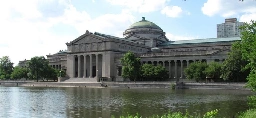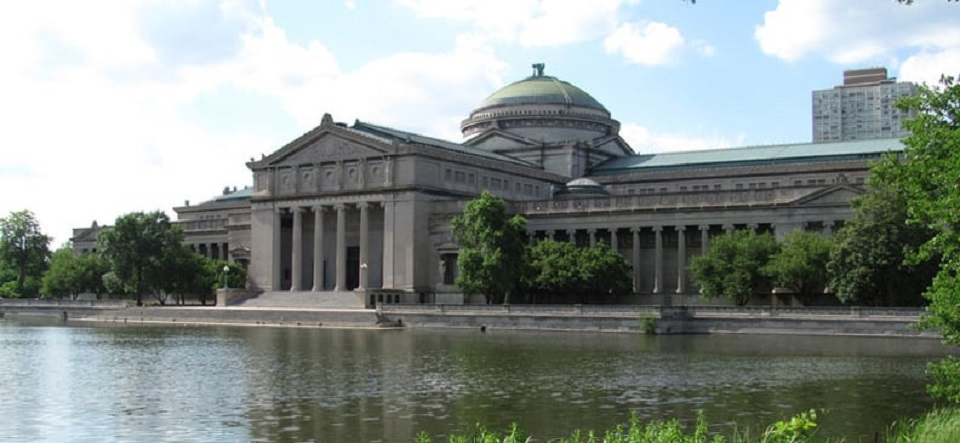Chicago’s Museum of Science and Industry workers file cards to unionize
Chicago’s Museum of Science and Industry workers file cards to unionize
CHICAGO —Another month and another leading Chicago cultural institution—the Museum of Science and Industry—saw workers file to unionize with the State, County and Municipal Employees (AFSCME) Council 31. Their April 12 announcement accompanied a letter with 54 signatures.


CHICAGO —Another month and another leading Chicago cultural institution—the Museum of Science and Industry—saw workers file to unionize with the State, County and Municipal Employees (AFSCME) Council 31.
Their April 12 announcement accompanied a letter with 54 signatures. AFSCME wants to cover 140 guest operations, guest experiences and education workers.
If workers at the museum, located at the northern end of Jackson Park, win a National Labor Relations Board-run recognition election, they’ll follow in the footsteps of colleagues at other world-renowned Chicago cultural institutions: The Newberry Library, the Art Institute and its school, and the Field Museum. Council 31 has won recognition votes at all of them.
Next up on AFSCME’s list, even before the Museum of Science and Industry, is the Peggy Notebaert Nature Museum of the Chicago Academy of Sciences. Its workers filed for union recognition on March 28. That election would cover approximately 50 guest services workers.
All are part of a continuing nationwide Cultural Workers United organizing campaign by the 1.4-million member AFSCME, national union President Lee Saunders told reporters D.C. at an informal get-together/press conference in a bar on April 12. Other notable wins include victories at art museums in Baltimore, Minneapolis and Philadelphia and leading libraries in major cities.
The Museum of Science and Industry “operates like a machine with many moving parts and it cannot thrive if we are unable to stand in solidarity with one another. We deserve a workplace culture that embodies the value of workers,” the grass-roots committee posted on its campaign website.
“In order to continue providing high-quality experiences and to create more inclusivity within our community, we have come together to solidify our voice by forming our union,” they wrote. Council 31 Executive Director Roberta Lynch said in a statement other reasons for the organizing drive “include fair treatment, better pay and a say in all decisions that affect them.”
The Museum of Science and Industry is familiar with unions, as a unit of 60 Electrical Workers (IBEW) members serves there, Council 31 says. There’s no indication of their specific tasks, but the museum’s renovated building is the sole surviving structure, at least externally, of the 1892-93 World’s Columbian Exposition—which was totally electric-lit in an era when electric lights were rare.
Internally, exhibits range from a reconstructed underground coal mine—complete with an elevator down the shaft—and see-through human body mockups to a captured Nazi submarine.
A museum email to the Chicago Sun-Times mouthed the standard corporate lines, that management “would respect the right” of workers to go union or not, but prefers direct dealing with employees, one by one. In such cases, bosses hold all the cards, especially the money card.
The museum claimed it’s competitive on pay, an assertion workers disputed in talking with the paper. They added low pay led to high turnover. The museum was silent about if it would hire an union-buster in union-friendly Chicago. The unionists’ cover letter urged it to avoid doing so.